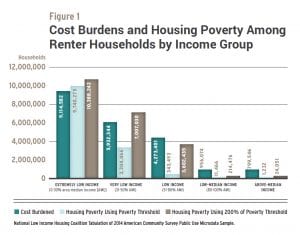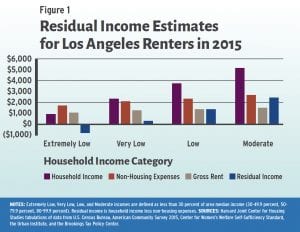
Topic
Housing
Housing matters. A stable, quality, affordable home is a foundation for so many other parts of life. How do we bring it in reach for everyone?
The Latest

Supreme Court Considers Landlord Appeal That Could Overturn Tenant Protections
A legal case claiming that COVID-era eviction moratoriums were unconstitutional could spell trouble for tenant protections
Explore Articles in this Topic
Search & Filter Within this Topic
filter by Content Type
filter by Date Range
search by Keyword

How To Do Affordable Housing When Your Government Is Being A Jerk
We’ve written about municipalities and states going at it alone when federal funding was scarce, but there is promising news from some groups that are working on innovative financing mechanisms—and some that shift the focus from development to acquisition, which is often a stumbling block.

After Paying for Housing, How Much is Enough for Basic Necessities?
We need some standards to explain what “enough” means. Here’s a breakdown of the Family Budget Calculator, the Self-Sufficiency Standard, and the Housing Poverty Measure.

A New Kind of Foreclosure Crisis Is In The Making
Some community development organizations think the foreclosure crisis is over, but there’s a new emergency within the more vulnerable segments of our population—and it is hitting the elderly particularly hard, says Lou Tisler, who recently left Neighborhood Housing Services (NHS) of Greater Cleveland after 12 years as executive director. That new crisis is tax foreclosures—the sale of a property due to unpaid tax liabilities.

How the Bay Area Got $2 Billion for Affordable Homes
San Francisco Bay Area voters approved bold new investments in 2016 after housing advocates–part of the Non-Profit Housing Association of Northern California–ignited a successful electoral strategy for the general election. Here’s how it worked.

Thoughts on the Unnatural Occurrence of Cheap Housing
There are two major issues with NOAH, better known as Naturally Occurring Affordable Housing. One is semantic, and one is practical.

Will Limited-Equity Cooperatives Make a Comeback?
Federal programs and cultural attitudes that helped launch a majority of the large limited-equity co-ops across the nation are long gone, but at a smaller scale, this model of resident-controlled, long-term affordable housing may be experiencing new interest.

How to Build a Case for Community Development and Affordable Housing
In the new administration, housing programs will feel the pressure of budgetary cuts and tax reform. Advocates should be careful not to put down other programs in the process of defending their own, or everyone will lose.

When Deep-Income Targeting Doesn’t Hit the Mark
Deep-income targeting, where the focus is on housing those with the lowest incomes, can mean dramatically different things to affordable rental housing developers in different states, and even in different market areas within the same state.

The Secret History of Area Median Income
AMI is typically used to determine whether a person is eligible for housing assistance. But in a large and wealthy area like the New York City metro, the resulting definitions of “low income” are often skewed, leaving out those who really need the help.

The 30 Percent Rent-to-Income Ratio Doesn’t Add Up in NYC
The 30 percent standard only ‘works’ in calculations where it is irrelevant. The residual-income approach, on the other hand, can turn what all too often becomes an abstract and theoretical discussion into a series of researchable questions.

Housing Need Is Even More Skewed by Income Than We Thought
Measuring only for cost burden overstates the housing needs of higher-income people and understates the extreme need at the lower end.

In Defense of the 30 Percent of Income to Housing Affordability Rule–In Some Cases
At an individual level, the 30 percent standard and the residual-income standard can produce very different results. But as a regional measure of affordability problems, they’re not so far apart.
